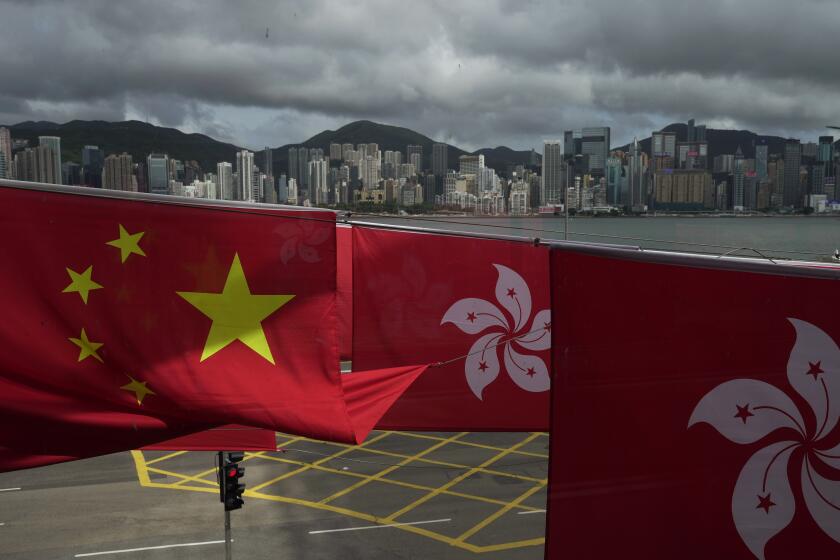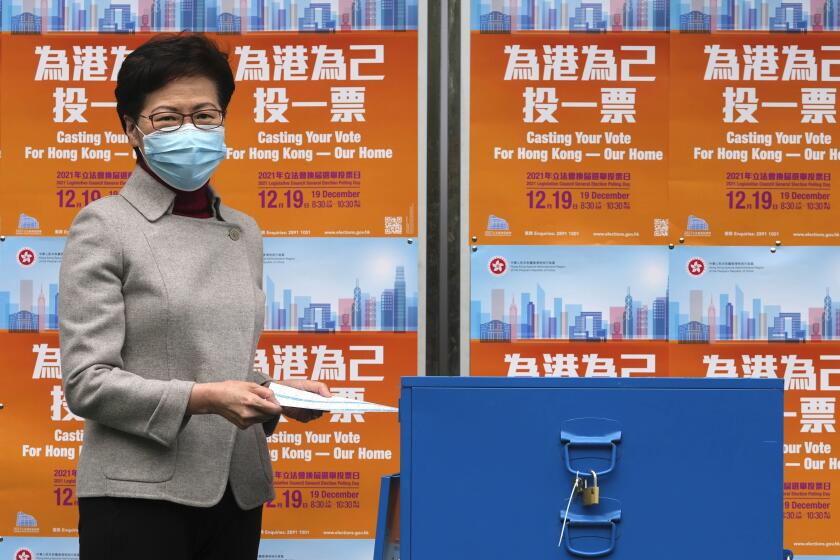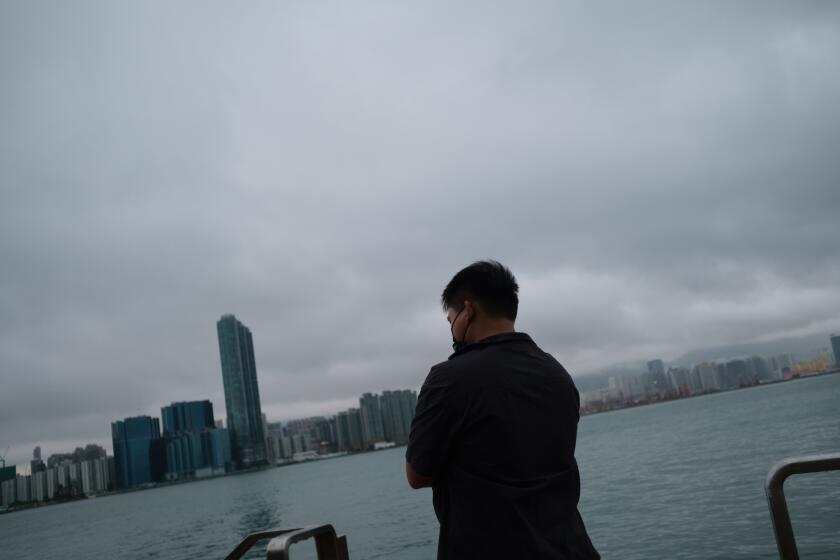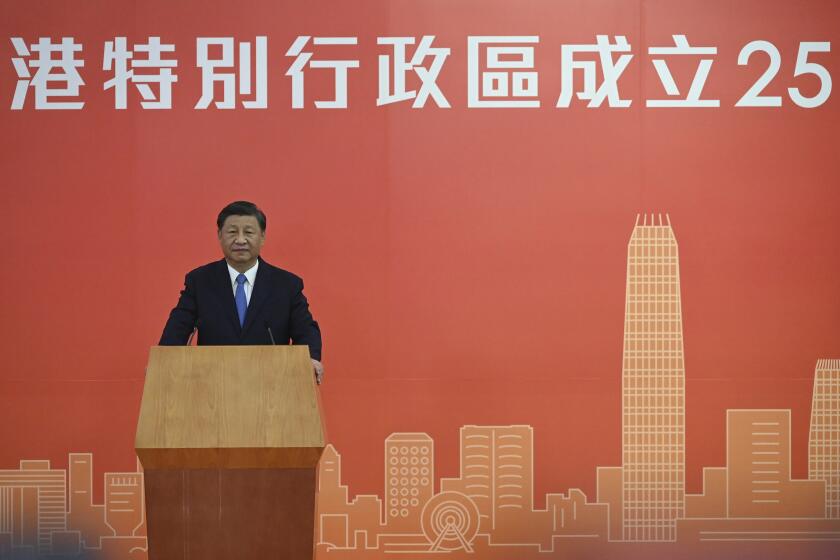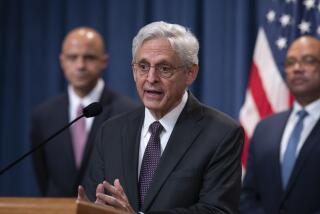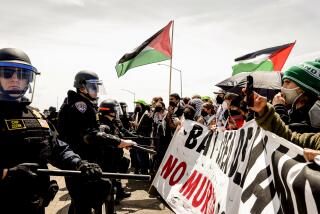Subversion trial of pro-democracy activists opens in Hong Kong
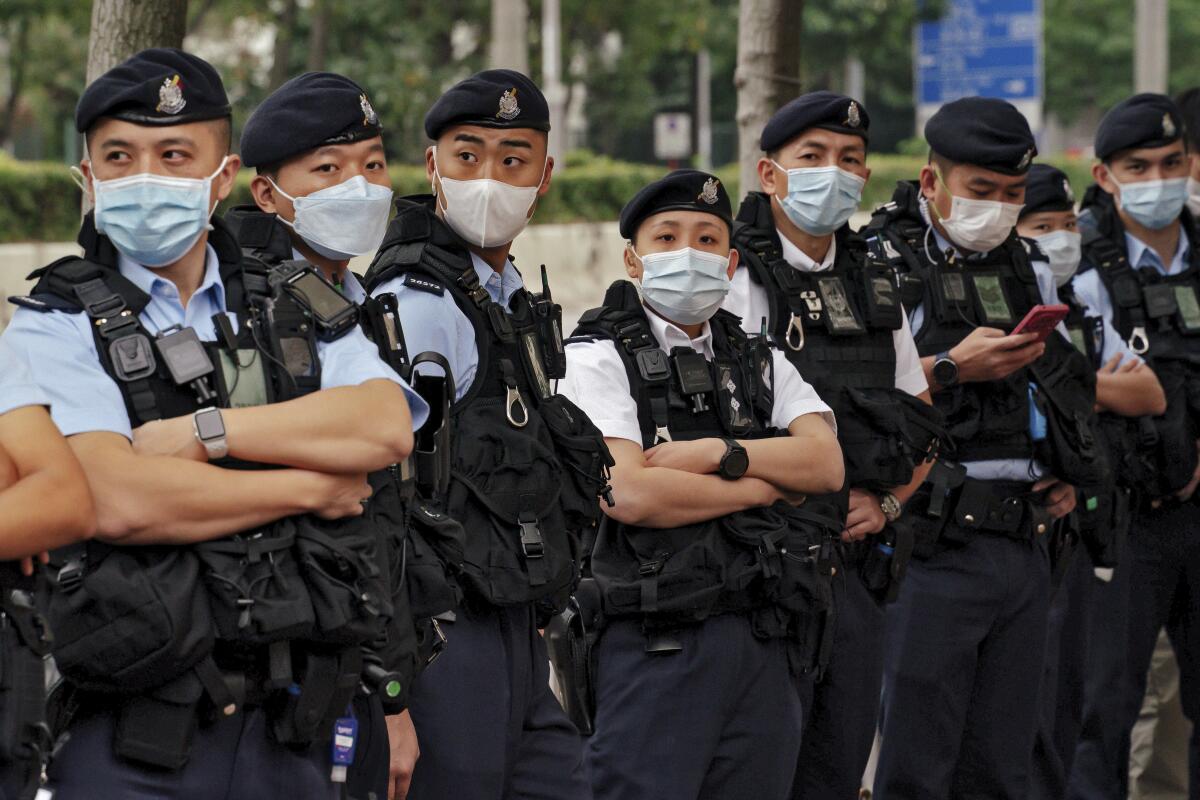
HONG KONG — Some of Hong Kong’s best-known pro-democracy activists went on trial Monday in the biggest prosecution yet under a law imposed by China’s ruling Communist Party to crush dissent.
The 18 defendants face up to life in prison if convicted under the national security law, which critics say is eroding the autonomy promised when Hong Kong returned to China in 1997 and the city’s status as a global business center.
The 18 are among 47 pro-democracy figures who were arrested in 2021 under the legislation, which was imposed following anti-government protests in 2019. The 47 activists have been charged in connection with an informal 2020 primary election.
The pro-democracy movement has largely dried up after activists were jailed or went into exile. Growing numbers of young professionals have responded to the erosion of Hong Kong’s Western-style civil liberties by leaving for Britain, the United States and other countries. The U.S. has imposed sanctions on officials whom it blames for abuse of power.
The informal primary in 2020 aimed to pick pro-democracy candidates who could win control of the territory’s Legislative Council. Prosecutors accuse them of trying to paralyze Hong Kong’s government and topple the city’s leader by securing a majority to veto budgets.
“The purpose of the conspiracy is to subvert the state power,” the prosecutor said in his opening statement.
Hong Kong is preparing to introduce new middle school textbooks that will deny the Chinese territory was ever a British colony.
The prosecution involves many of the city’s most prominent activists, including legal scholar Benny Tai, former student leader Joshua Wong and opposition party leaders Wu Chi-wai and Alvin Yeung.
Tai and four others were the election organizers and had indispensable involvement, the prosecutor said.
In previous proceedings, the 18 well-known activists had indicated their intention to plead not guilty. But two of them — former district councilor Ng Kin-wai and businessman Mike Lam — later changed their minds, joining the other 29 activists, including Tai, Wong, Yeung and Wu, who plan to admit to the charges.
While most of the 47 activists who were charged with conspiracy to commit subversion have been detained without bail for nearly two years, former lawmakers Raymond Chan and Helena Wong, who appeared in court Monday, were among the minority who were granted bail based under strict conditions.
Low turnout was expected as Hong Kong voted in the first election since Beijing amended the laws to reduce the number of directly elected lawmakers.
Ahead of the opening statements, Chan and Wong, alongside 14 other activists, pleaded not guilty before the judges, who were approved by Hong Kong’s leader to oversee the case. “There is no crime for me to plead guilty,” former lawmaker Leung Kwok-hung said.
Ng and Lam pleaded guilty. Those who intend to plead guilty will receive their sentencing after the trial.
The court also heard that four of the 47 activists would give evidence as prosecution witnesses.
Earlier in the morning, more than 200 people, including relatives and friends of the defendants, lined up outside the court building as local police stepped up security in the area.
Breaking News
Get breaking news, investigations, analysis and more signature journalism from the Los Angeles Times in your inbox.
You may occasionally receive promotional content from the Los Angeles Times.
Some people at the front of the line, including a group of more than 10 who came at 6 a.m. to secure a seat for the hearing, said they had no clue what the trial was about. That prompted pro-democracy activists among the spectators to question whether they were just trying to occupy the seats so that other members of the public could not get a place to observe the high-profile trial.
Three members of the League of Social Democrats staged a small protest outside the complex, urging the immediate release of all political prisoners.
“Primary election is not crime. This is political repression,” Chan Po-ying, one of the members, said.
Police took away her colleague for violating the mask mandate when he took his mask off and tried to speak loudly.
More than 10,000 Hong Kongers were arrested during the 2019 political unrest. As the mostly young people trickle out, their future remains uncertain in a city firmly under the grip of authoritarian China.
The trial is expected to last 90 days. The case has drawn international scrutiny, with advocacy groups and politicians condemning the charges.
Amnesty International’s deputy regional director, Hana Young, called for the charges to be dropped, saying the activists were forced to decide whether to admit guilt of “a non-existent crime” for a potential penalty reduction or fight a losing battle.
“With this mass trial, the Hong Kong government is attempting to shut off all meaningful political participation in Hong Kong,” she said.
She added that the authorities would never be able to fully silence dissidents, pointing to the protest outside the court.
Chinese President Xi Jinping visits a vastly transformed, Beijing-controlled Hong Kong, which is now ‘just another Chinese city,’ one expert says.
The government postponed the legislative election that would have followed the primary, citing public health risks during the COVID-19 pandemic. The electoral system was later overhauled to give Beijing more control over who is elected to Hong Kong’s legislature.
The national security law criminalizes secession, subversion and collusion with foreign forces to intervene in the city’s affairs as well as terrorism. Apart from the activists who went on trial Monday, pro-democracy publisher Jimmy Lai is also facing collusion charges under the law.
More to Read
Sign up for Essential California
The most important California stories and recommendations in your inbox every morning.
You may occasionally receive promotional content from the Los Angeles Times.
